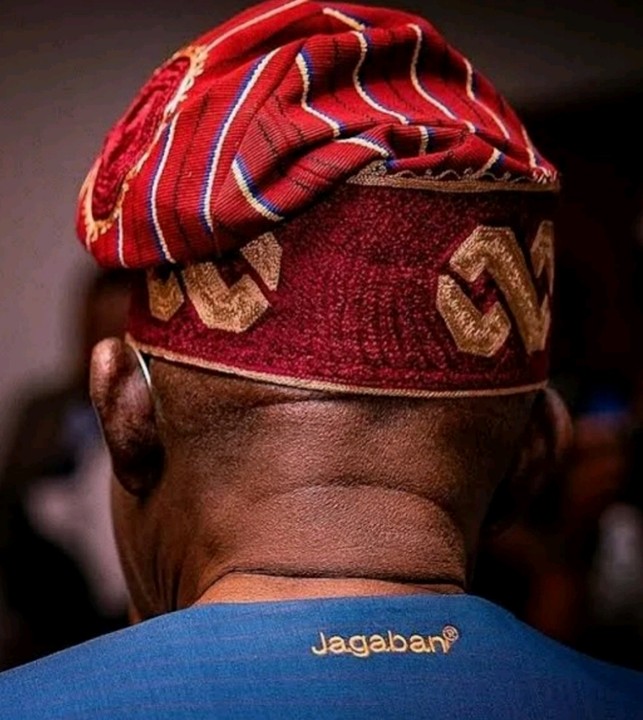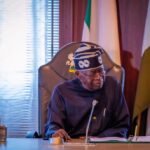As the curtain falls on the year 2023, the situation calls for taking stock of the most significant features that defined its course and enduring landmarks. For without much equivocation the year 2032 will go down in history as one span in time, which Nigeria and Nigerians may not forget in a hurry. Among the several landmark developments in its course, was the conduct of a general polls exercise, which threw up one name – Senator Bola Ahmed Tinubu as now the President of the country, and now the most potent determinant of its future.
Trumping any other name in contemporary Nigerian politics by a long distance, President Bola Ahmed Tinubu, had before his ascendancy to the office of President carved for himself a larger than life image – a dispensation which earned him several traditional titles with the most prominent ones being two – ‘Asiwaju’ of Lagos and ‘Jagaban’ of Borgu Kingdom (the home place of Kainji Dam, Nigeria’s foremost source of electricity). Granted that both titles from different parts of the country commonly refer to a leader with verve (‘muscle’ in Nigerian parlance), his road to the exalted office and six months in the saddle as President, have come to prove that 2023 will go down in history as the year of Tinubu – the Jagaban.
As things stand, the first six months of a statutory four year tenure that may possibly stretch into eight years have defined the course and form of things to come the way of Nigerian’s under President Bola Tinubu. This is attested to by a typical run down in no particular order of the leading outings of the Tinubu era which have rendered Nigeria as a country that has been jolted out of its already compromised health condition, and into a running pace.
How Nigerians have taken the sudden change in governance style has been a tale of different strokes for different folks. To some who believe in his politics, it is a welcome dispensation. For others, it is a different kettle of fish. Yet one thing is clear with the Tinubu administration, hate him or like him, he cannot be ignored or taken for granted, as the difference with him is one trait – personal engagement with issues of governance.
To accentuate the features that define this turning point in governance by Tinubu is a line up in no particular order, of a few outings by the administration.
For a befitting start of the line-up is the shock therapy in the announcement by Tinubu, of the removal of subsidy on price of petrol, during his inaugural speech as the President of the country on May 29 2023. The action spiraled prices of literally every commodity and service upwards in every market across the country. Needless to state that six months after that dispensation, the country – especially the Nigerian poor and the middle class, have not recovered from its impact.
In reaction to the fuel subsidy removal, there was a rash of labour activism and strikes which led to negotiations between the striking workers and government, with deals struck between the two parties and which had Tinubu personally involved in such outcomes. Among the deals was the palliatives package like salary padding for workers, and the fast track rehabilitation of the country’s refineries.
Next came the matter of fostering a favourable political terrain, for facilitating the success of his policy initiatives. And the first port of call for ambush was the leadership of the National Assembly. The various dramatic turns of events in that institution clearly featured both the ‘hand’ and ‘voice’ of Tinubu in deciding who got which office. His ambush of the political terrain was not to spare his political party the All Progressives Congress (APC), where his dexterity in partisan trench warfare manifested in the total routing of its top leadership and installation of his ‘President’s men’.
Then came Tinubu’s visitation on the leadership of the Central Bank of Nigeria (CBN), with the appointment of Mr Jim Obazee – an astute specialist sleuth in unravelling fraud and infractions in corporate governance, as a special investigator of that institution. Ever since Obazee’s visitation there, it has been a season of ruffling of feathers.
A take on Tinubu’s globe-trotting forays in search of foreign investors, offers another insight into Tinubu’s eye on global funds and the possible dividends from there. Given that the dividends from such enterprise may not manifest in a hurry, only time will tell about the utility of such trips.
Ostensibly however, a dip in his outings which perhaps was executed on his behalf early in his tenure was the vexatious renaming of Port Harcourt Airport after Chief Obafemi Awolowo, instead of any of the numerous national figures from the Niger Delta, whose relevance to and connection with the people of the zone, far outweighs such from Awolowo. And until the outrage is corrected, it will remain an assault on the ethnic sensibilities of the region as long as it is widely construed as a gesture of ethnic conquest of the South South region by the South West.
Added to the foregoing is the agony of the region in the situation where the President’s was ill-advised to intervene in the political arm-twisting of the governor of Rivers State by his predecessor Nyesom Wike, with a pro-Wike prescription for Fubara. Following Wike’s loss of the presidential ticket of the Peoples Democratic Party (PDP), he had embarked on a spoiler’s mission to undo the party. Needless to emphasize that the mere appointment of a vengeful Wike, as the Minister of the Fedral Capital Territory (FCT), smacks of an act of treacherous, open assault by Tinubu, who came to power on the platform of the rival APC, and is not lost on the entire country. In the eyes of the general public, this is a joint mission by Tinubu and Wike to decimate all opposition parties an foster a unitary government under Tinubu, starting with the PDP. In the process Wike has of himself as a willing renegade who is even reveling in a dance with macabre portends that may be threatening his entire political career, and in a dispensation which even his new found alliance with Tinubu, may not restore.
Meanwhile there is a silver lining on the horizon through the circumstances of Budget 2024, whose course through the legislative mill in the National Assembly is offering the hope of a faster pace of governance, to the country. Whereas since the return of democracy in Nigeria in 1999, the federal budget presentation and passage cycle has lasted an average of three months, Tinubu’s 2024 budget is breaking new grounds with its one month cycle. Presented on November 28, 2023, its passage by the National Assembly is scheduled for Saturday December 30 2023. This is so in order to meet up with the statutory January-December budget implementation cycle.
This feat calls for commendation for all actors in the process, comprising President, Bola Tinubu, his cabinet ministers, members of the National Assembly, and most importantly the National Assembly bureaucracy, which is ably led by Sani Tambuwal the Clerk to the National Assembly (CNA). In comparative terms, hardly can any other development accentuate a turning point in governance by the Tinubu administration more definitively, than the reinvention of the country’s fiscal regime, with the encouraging fortunes of Budget 2024.
Meanwhile, in summing up the Tinubu era in 2023, a Nigerian had referred to it to be like some locally-produced rice, which may be sweet, but offers frequent encounters with jaw-assaulting stones.

 Join Daily Trust WhatsApp Community For Quick Access To News and Happenings Around You.
Join Daily Trust WhatsApp Community For Quick Access To News and Happenings Around You.


